When you dream of owning a restaurant, there is more to it than planning a menu, setting up the building, and hiring a few servers. Your restaurant is tattered with risk from an insurance perspective, and there are several issues for which you should be prepared. Review these insights to better understand what you’re taking on before opening your doors. If you haven’t yet looked into risk management, you should.
With the Bureau of Labor Statistics estimating the number of failed restaurants at around 17% within the first year, you must take risk management seriously.
Create a Safe Workplace
If you’ve never worked in food service, you may not be aware that restaurants are inherently dangerous places to work. Yes, the chefs, kitchen staff, and servers should wear non-slip shoes, but there are a lot of people moving through the space, glass could shatter at any time, hot items could be dropped, diners are using knives and forks, etc.
In order to foster a safe workplace, you can take the following steps:
- Teach employees how to properly lift, carry, and manage food, boxes, trays, etc.
- Stack boxes safely
- Move heavy objects to lower shelves
- Require non-slip shoes for all staff
- Hire bus boys that keep tables and floor clean at all times
- Install powerful fans in the kitchen
- Hire security if you feel it’s necessary
- Carry workers’ compensation insurance and post details throughout the building
- Create an injury reporting and response plan
- Offer employees paid time off so that they can stay home if they are sick
Risk management relies on constant vigilance and protocols that your staff will follow to the letter. This includes reprimanding employees who do not abide by these guidelines.
Prevent Food Poisoning and Stay Alert for Food Allergies
In order to avoid food poisoning and allergy concerns, you should take a few simple steps:
- Post food allergy notices throughout the building
- Note allergens on the menu
- Offer training for all staff to avoid cross-contamination
- Require employees to wash hands often
- Routinely inspect food stores to avoid spoilage
Even so, some customers could fall ill after eating at your restaurant—this is almost unavoidable. As a result, your risk management plan should include general liability, product liability, and excess liability insurance.
Take Alcohol Service Seriously
A bar can be profitable, and your bartenders will make good money. However, you should be aware of Florida’s dram shop law, Title XLV, Chapter 768, Section 768.125, which clearly states that your business can be held liable if a “habitual” drinker or minor is served in your establishment and goes on to injure or kill someone.
Moreover, you should look carefully at how your pours are managed. This is a safety issue more than it’s a financial concern. Light pours are safer for everyone, and you should post signage noting that the bartenders reserve the right to refuse service at any time.
Then, you should train your bartenders to turn away anyone who has clearly had too much to drink. Barkeeps are often your best risk managers.
Avoid Cyberattacks
An important part of running a restaurant is avoiding cyberattacks. You likely have a website, use an online ordering system, or even offer public wifi. First, your public wifi needs to be secured with the strongest protection you can buy. Hackers can easily engage with free public wifi if you haven’t taken the appropriate steps.
Use a cloud-based POS system that helps you back up your information and apply security software that keeps hackers out. You should do the same with your website, and you should never reveal sensitive information to anyone. No, you’re not a doctor or lawyer, but there’s no reason to reveal private information to anyone just because they asked. Instruct your staff to do the same.
If you don’t want to purchase random software or don’t know what to do, you can hire a cyber risk management firm to oversee your entire operation.
Contact HomePort Insurance for Assistance With Restaurant Risk Management
Contact HomePort Insurance for assistance when you want to create a risk management plan for your restaurant and better protect your investment. Because restaurants are so active, you should be ready to make changes, add insurance to your portfolio, and upgrade your protocols as needed.




